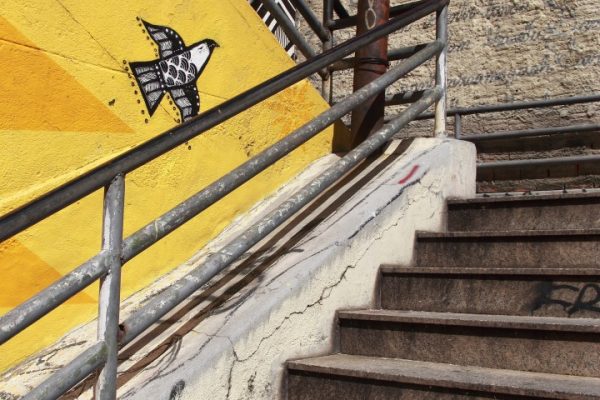A phrase from an essay I read last week, called Some Thoughts on Mercy by Ross Gay, has stuck with me. He reflects on the experience of being pulled over by police on a summer night, as a black man driving home from working late at his office. He considers how the stop-and-frisk practices in New York City affect youth, where 87% of targets are black and Latino. He writes:
“How, when their city believes them to be criminal, do these young people escape believing the same of themselves?….Isn’t it, for them, for us, a gargantuan task not to imagine that everyone is imagining us as criminal? A nearly impossible task? What a waste, a corruption, of the imagination.”
A corruption of the imagination. This describes the ideologies that would lead a person to perform heinous acts, such as mass shootings, and the fear-based fake news on social media. Gay writes:
“The imagination, rather than being cultivated for connection or friendship or love, is employed simply for some crude version of survival. This corruption of the imagination afflicts all of us: we’re all violated by it. I certainly know white people who worry, Does he think I think what he thinks I think? And in this way, moments of potential connection are fraught with suspicion and all that comes with it: fear, anger, paralysis, disappointment, despair. We all think the worst of each other and ourselves, and become our worst selves.”

How can we cultivate our imagination for connection and evolving beyond these patterns of hate and violence? One place to start is to focus on how our own imagination has been corrupted (e.g., implicit bias). Polarization affects how we see others. In the US, a recent national survey on the ‘partisan perception gap’ found that: “Democrats and Republicans significantly overestimate how many people on the ‘other side’ hold extreme views. Typically, their estimates are roughly double the actual numbers for a given issue.”
It feels imperative to create places and experiences where people can talk and connect, eye to eye, and we can put our imagination to a higher common purpose. The author, Ursula Le Guin, defines the imagination as “the ability and willingness to imagine alternatives to reality as we know it is always the first step toward making different and better realities possible.” Restoring relationships is crucial to this process of imagining other realities, so that the path and vision are developed together, not with one group imposing them on another. Social change networks and other multi-stakeholder collaborative initiatives can be fertile places to practice imagining other ways to live and work.
In learning from peace builders working in situations of extreme conflict, we see they too talk of the value of imagination. John Paul Lederach, in his book The Moral Imagination: The Art and Soul of Building Peace, reflects on what he learned from working with deep-rooted conflicts in many troubled places. He asks:
“What then, created a moment, a turning point, of such significance that it shifted whole aspects of a violent, protracted setting of conflict?” The answer: “I believe it was the serendipitous appearance of the moral imagination in human affairs.”
It can be natural to focus on technical solutions, the facilitation process, or conflict resolution skills, but what Lederach found is: “that the wellspring, the source that gives life, is not found in the supporting scaffolding, the detailed knowledge of substance and process, nor the paraphernalia that accompanies any professional endeavor, be it artistic, political, economic, or social. The wellspring lies in our moral imagination, which I will define as the capacity to imagine something rooted in the challenges of the real world yet capable of giving birth to that which does not yet exist.
Read more about a learning exchange where we imagined: What does it take to work and live from patterns and behaviors that embody mutual respect, dignity, equity, belonging, and being more together?
